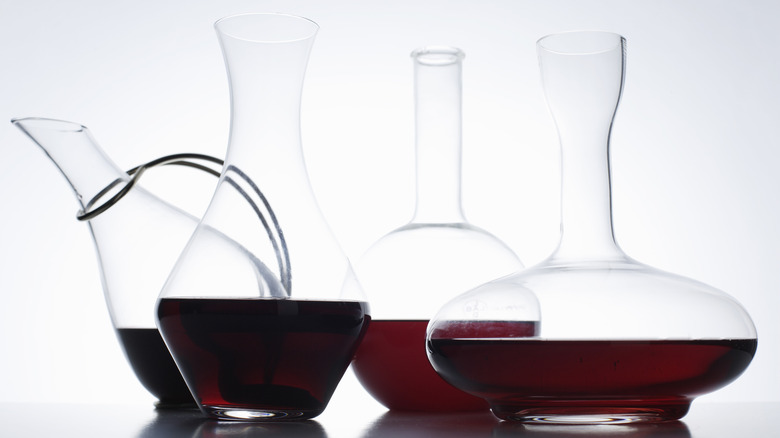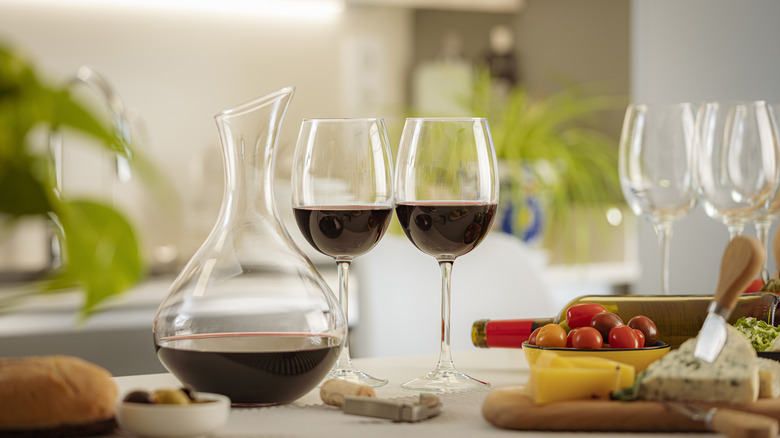How Decanter Shape Can Dramatically Affect Your Wine Drinking Experience
Whether an old or new world wine is the subject of your decanting experience, a unique vessel that's capable of enhancing its most appealing characteristics exists. The immense variety of decanter styles, shapes, and sizes can make choosing the perfect decanter for the job seem more difficult than it actually is. For that reason, received guidance on how a decanter's shape can affect your wine drinking experience from an expert on the matter: Maximilian Riedel, CEO & President of Riedel, a family-owned and operated wine glass company that has been changing the decanter game for 265 years.
The Riedel company produces decanters of quite a few different shapes and sizes, all of which serve purposes beyond aesthetics. "Riedel's philosophy is built on the Bauhaus principle 'form follows function.' Because we value functional products at Riedel, our decanters' shapes affect wines in different ways to enhance the serving experience," Riedel says. He notes that decanters with longer necks or multiple air pockets will improve the drinking experience of younger wines in particular, while decanters that limit a wine's contact with air are better suited to older wines.
Different decanters enhance different delights
Decanters with multiple air pockets, or decanters that can double-decant, are perfect for younger wines. When wine is poured from such a decanter, the vacuum created by these air pockets exposes the liquid to more oxygen as it is poured. This process aerates the wine, further enhancing the flavors of younger varieties that can sometimes come across as a bit harsh. "This process helps to soften tannins and release aromas," Maximilian Riedel explains.
In contrast to decanters with air pockets, decanters with long necks allow you to take wine aeration into your own hands. "This style is ideal for young wines since the long neck allows you to shake the wine, vigorously aerating and softening punchy tannins before serving," Riedel says. Decanters with long necks are great for help you ensure that the tannins of young wine taste just right (tannins play an important role in wine because of their influence on mouthfeel — higher levels can make for a more astringent glass).
Unlike younger varieties, older wines may not benefit from aeration, so decanters with limited exposure to oxygen can be the ideal choice for these bottles. "The design of this decanter means there is a smaller surface area exposed, making it great for serving older wines, which can be more fragile, since they are not overexposed to oxygen while poured through this decanter," Riedel explains. Such decanters are valuable tools to help you avoid hyper-decanting your wine.

